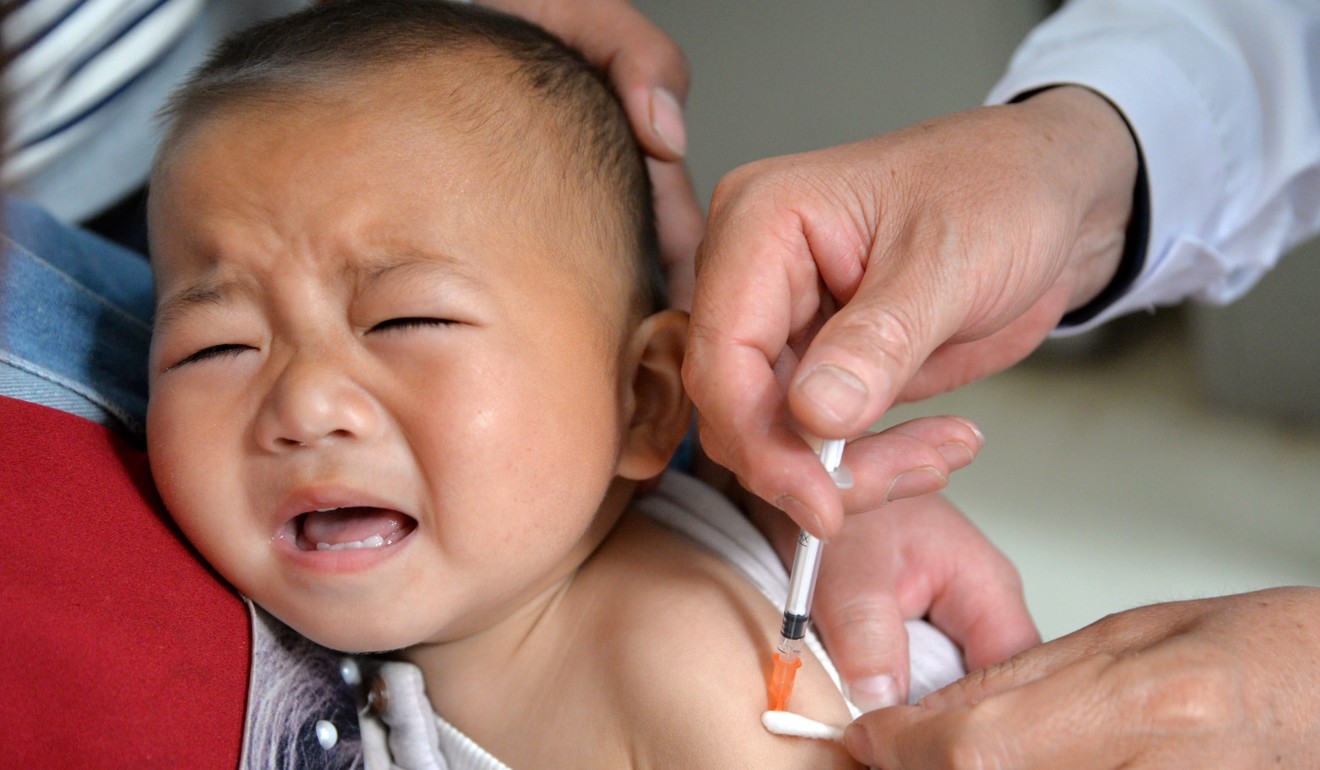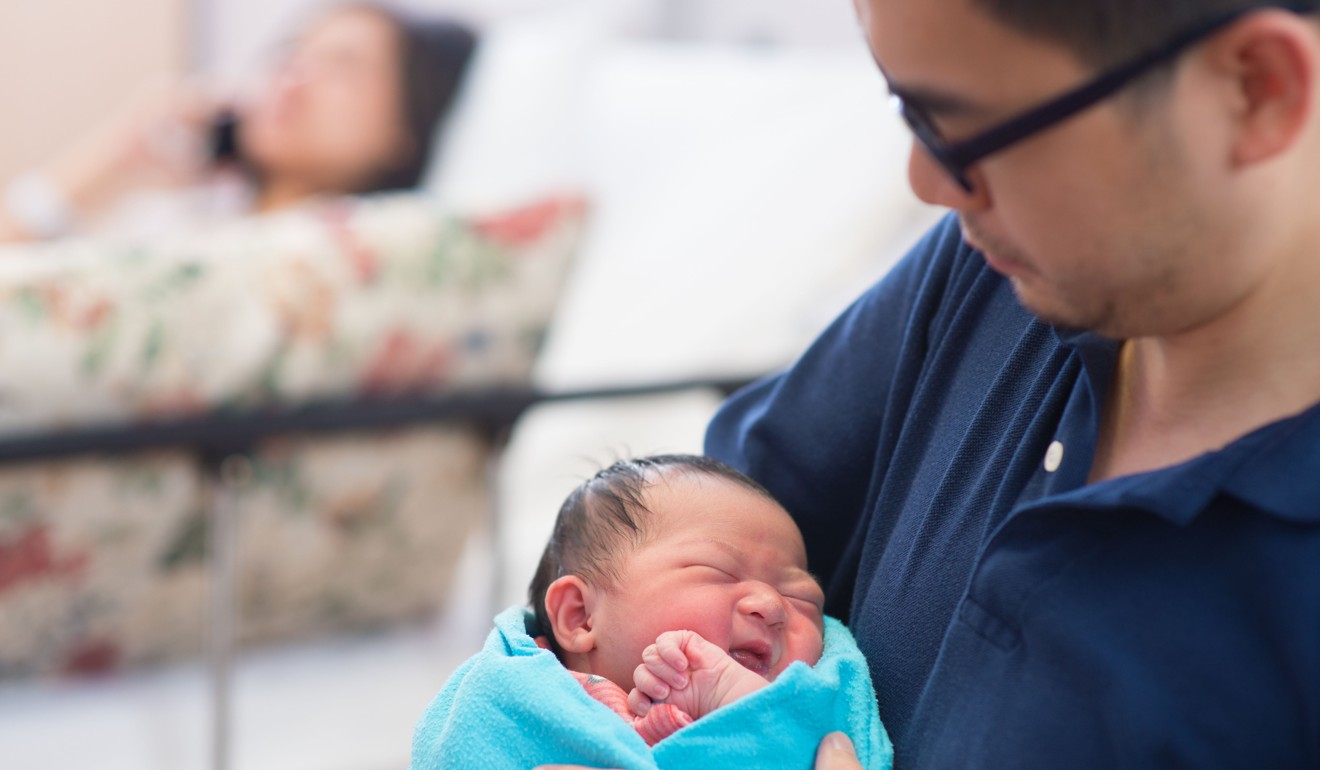
As new vaccine scandal grips China, parents say they’ve lost faith in the system
Chinese drug maker found supplying substandard vaccines that were given to babies as young as three months old
Parents say they have lost faith in the system after a major drug maker was found to be supplying inferior vaccines that were given to babies as young as three months old, in the latest public health crisis to grip China.
The Jilin Food and Drug Administration revealed the vaccine safety scandal on its website on Friday.
After an investigation, Jilin-based Changchun Changsheng Bio-technology was found to have sold some 252,600 substandard DPT vaccines to the Shandong Centre for Disease Control and Prevention, the agency in charge of public health in a province of about 100 million people.
It was not yet known how many children had been given the inferior vaccines against three infectious diseases – diphtheria, whooping cough and tetanus – through the state-sponsored disease control system.
Changsheng Bio-tech – which means “long life” in Chinese – is the latest company in the scandal-plagued pharmaceutical industry to be found producing vaccines that are not up to standard.
In November, the state drug watchdog revealed that another big vaccine maker, the Wuhan Institute of Biological Products, had sold 400,520 inferior DPT vaccines to Chongqing and Hebei. It is still unclear how many children had been given these vaccines, and the company has yet to be punished.
The DPT vaccines in both cases were bought by provincial public health authorities to be given to children under a compulsory health programme. They were found to be ineffective, but it is not known whether they could cause harm. There have been no reports of any children falling ill after being given the vaccines.

Subsidised by the government, the DPT vaccine is given to infants across the country. Newborns are usually given four doses, with the first jab at around three months old.
One father in Guangzhou, whose daughter was given four doses of DPT produced by both Changsheng and the Wuhan Institute in 2015 and 2017, said he was angry and no longer had any faith in vaccines made in China. The man, surnamed Lin, said he planned to take his daughter to Hong Kong for vaccinations in the future.
“I [and my family] will not be having any more vaccinations on the mainland until the government takes real and serious steps to resolve this issue,” Lin said.
Experts insist flu vaccines are ‘66 per cent effective’ amid doubts cast by another Hong Kong celebrity
In Shanghai, a mother surnamed Li also said she had lost confidence in the country’s pharmaceutical industry and would choose imported vaccines in the future. Her son was injected with a DPT vaccine produced by the Wuhan Institute in 2015.
“Vaccines directly relate to children’s health. This scandal really saddens me,” Li said. “Can we now only ensure our children’s health if we give them imported food and imported medicine?”

Changsheng Bio-tech was fined 3.4 million yuan (US$502,200) by the Jilin watchdog over the DPT vaccines – a small sum for a listed company that reported 566 million yuan in net profits last year. It also received 48.3 million yuan in new government subsidies in 2017, according to its annual report.
The drug regulator first revealed the company was under investigation in November, saying it could take up to two months, but did not release its findings until Friday.
The company issued a statement on Sunday evening on the Shenzhen Stock Exchange, saying it had shut down production of the DPT vaccine and expressing its “deep apology” to all those affected.
But questions remain as to how inferior vaccines were able to pass through a system of checks. There has been no statement from the National Health Commission as to how the low-quality vaccine might affect children.
Vaccine shortage leaves Chinese parents scrambling, some travelling to Hong Kong and Macau for injections
Meanwhile, the Shandong edition of Communist Party mouthpiece People’s Daily called on the government to take action to ease public concerns about the scandal in an editorial headlined, “Don’t let fear and anger spread”.
It said the latest case would “lead more people to be sceptical about domestically produced vaccines” given that public confidence had barely recovered from the scandal two years ago over expired vaccines that saw 200 people arrested.
That case in 2016 caused a public outcry when it was revealed that 570 million yuan of improperly stored or expired vaccines had been illegally sold across the country for years.
It came after state-run China Economic Times in 2010 revealed that hundreds of children in Shanxi province had died or suffered from severe side effects because of damaged vaccines over a period of three years. Shanxi officials denied there were problems with vaccines at the time and the newspaper’s editor was sacked after the report was published.


